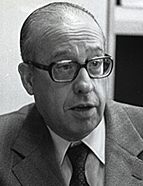

This book contains some of the key facts he had brought to public knowledge on Portuguese and world expansion. Always questioning the entity of Portugal, what it means to be Portuguese, seeking to inflect what was being written on the history of the discoveries and enable an overview of enormous wealth where permanence and innovation, economies, societies, cultural structures, and mental tools are displayed. In relation to this book, Boxer stated: “I have never written a book of such intellectual dimension.”
These were the years of commemoration of the Portuguese discoveries, events against which he had often protested as they appeared to be an outmoded form of dwelling on memories connected to a backward way of thinking: “under the guise of commemorations, we have lived these years characterized by tumultuous changes in society , simultaneously watching the unfolding of a panoply of tradition where tradition itself is promoted as a value criterion.” “Commemorations ritualise the itinerary followed by societies, abiding by the ideological intentions of the epoch in which they are celebrated; often proposing or basing themselves on mythologies, they drive men away from the problems they have to face.” Only research “conducted scientifically, rigorously and impartially” can be a way-out for the negative and detrimental side of commemorations. He published this in the journal História [History] in 2000. Regretfully, he viewed what was being done as a waste of public funds. And he knew that this was a lost battle. This may well be why he contemplated “saying goodbye to the discoveries”, which was something that never came to pass.
However, his attention was occupied with other issues related to his constant concerns and interests. He took an extended break marked by a thematic shift to the First Portuguese Republic. He used old family papers to write a biography of his father, colonel Vitorino Henriques Godinho, entitled Vitorino Henriques Godinho. Pátria e República (1878-1962) [Vitorino Henriques Godinho. Homeland and Republic (1878-1962)]. He managed to steer away from the dangers of filial affection, but nevertheless displayed a natural attitude of affection towards the person whose biography he was writing, though viewed from a neutral standpoint. His admiration is extended to other family members and friends, namely colonel Manuel Maia Magalhães and general João Pereira Bastos. On the basis of their information, he proceeded to provide a general overview of the Republican regime, its successes, and many failures, its commitment to World War 1 and the actions of the expeditionary forces, evidencing an unbeknownst knowledge of military technique and tactics he clearly took relish in dwelling on. But above all, he was attentive to rectify the growing abundance of revisionist views. He thought best to fight such “archaic re-idealisations” since, as always, one must understand and explain “Portugal and the Portuguese.” This is the title of a work he had often contemplated publishing, a book upon which he had reflected and planned with collaborators but one he had never written.
